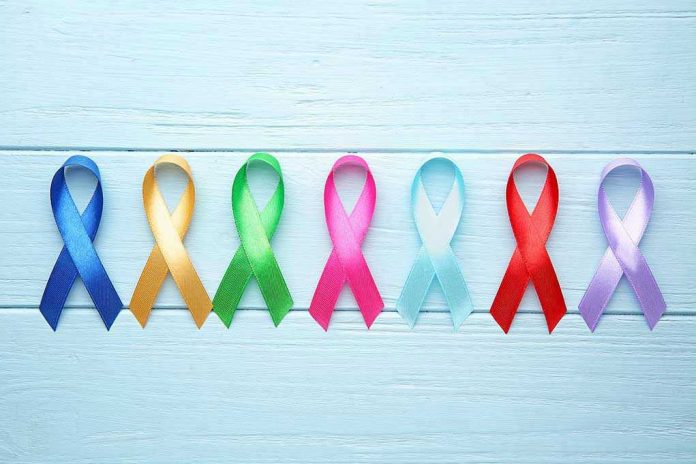
Government agencies missed an invisible threat—environmental toxins—in a shocking breast cancer case, exposing the consequences of unchecked policies and raising new questions about public health oversight.
Story Highlights
- A woman’s breast cancer diagnosis uncovers alarming environmental contamination, highlighting overlooked public health risks.
- Her case reveals gaps in regulatory protections and the dangers of ignoring common sense health safeguards.
- Medical experts now confront the reality that microplastics and chemical exposure may be contributing to rising cancer rates.
- Calls grow for American institutions to restore accountability and prioritize citizen health over globalist agendas.
Personal Discovery Sparks National Concern
After receiving a breast cancer diagnosis through standard medical imaging and biopsy procedures, an American woman uncovered a shocking underlying cause by pursuing further testing and consultation.
Her revelation—summed up by her statement, “I am chock full”—suggests her body was saturated with environmental contaminants like microplastics or industrial toxins. This case has ignited intense curiosity and concern across the country, raising questions about how government regulators and medical institutions missed the warning signs and failed to protect citizens from modern health threats.
Medical Evidence Reveals Environmental Dangers
Major cancer centers and research organizations confirm that breast cancer’s causes are complex, spanning genetic, hormonal, and lifestyle factors, but also increasingly including environmental exposures.
Recent studies have found microplastics and chemical disruptors in human blood and tissue, prompting experts to reassess the risk landscape.
While medical professionals rely on advanced diagnostics to detect disease, this case exposes a dangerous blind spot: the lack of systematic screening for environmental toxins.
Conservative analysts argue that decades of regulatory complacency, driven by misplaced priorities and globalist influences, have allowed these contaminants to infiltrate American communities.
Stakeholders and Accountability
The central figures in this story include the patient herself, whose testimony and advocacy are now pushing for broader awareness of non-traditional cancer causes.
Medical professionals—oncologists, radiologists, and pathologists—face the urgent task of updating diagnostic protocols to account for the realities of environmental health.
Scientists are ramping up research into the links between toxic exposure and cancer, while regulatory agencies are being called out for failing to enforce robust safeguards.
The power dynamics have shifted, with public outrage fueling demands for transparency and reform in both healthcare and government oversight.
Policy Failure and Constitutional Concerns
This incident has illuminated a systemic failure in government and institutional accountability. For years, left-leaning policies prioritized international interests and bureaucratic expansion over the health and safety of American families.
The lack of decisive action against environmental threats undermines the constitutional promise of protecting individual liberty and the pursuit of happiness.
Conservative groups are calling for immediate reforms, including restoring strict regulatory controls, halting globalist initiatives that dilute American standards, and empowering local communities to demand answers.
This case serves as a wake-up call for policymakers to return to common sense protections rooted in American values.
The Path Forward: Restoring American Health Security
Experts from leading cancer centers caution that while environmental factors are increasingly linked to cancer, more research is needed to establish direct causation in individual cases.
However, calls for interdisciplinary collaboration and urgent policy reform are growing louder. Conservative advocates insist that protecting the health of American citizens must come before ideological agendas or global interests.
This story underscores the need for robust screening, transparent government oversight, and a renewed commitment to constitutional and family values.
As more citizens become aware of environmental health risks, the pressure on institutions to deliver real accountability and reform will only intensify.
Sources:
Stanford Health Care: Breast Cancer Diagnosis
Living Beyond Breast Cancer: Breast Cancer Treatment Timeline
Brigham and Women’s Hospital: Breast Cancer Diagnosis and Stages
Mayo Clinic: Breast Cancer Diagnosis & Treatment
Memorial Sloan Kettering Cancer Center: Breast Cancer Diagnosis, Types & Stages
Bedford Breast Center: Your Breast Cancer Treatment Timeline—What to Expect
The Ohio State University Comprehensive Cancer Center: Breast Cancer Diagnosis and Staging
American Cancer Society: Treatment of Breast Cancer Stages I-III














